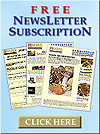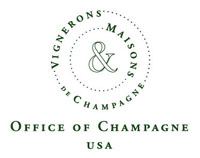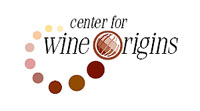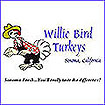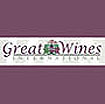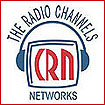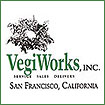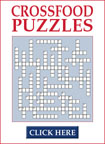New Poll Shows American Consumers Want
Policymakers to Protect Wine Region Names
Consumers, call for action coincides with
new
round of Wine Accord talks in Washington,
DC
Washington, DC: A new
national survey released today reveals
that an overwhelming majority of American
wine consumers “ 80% " want
policymakers to correct the problem of
misleading wine labels.
On the eve of trade talks between U.S.
and E.U. negotiators in the nation's Capitol,
the national poll, conducted by Fairbank,
Maslin & Associates, serves as a reminder
to trade negotiators that location matters.
For example, other key findings include:
85% believe that the region or location
where a wine comes from is an important
factor in their decision to buy a particular
bottle of wine.
81% agree that wines should only be allowed
to use a specific geographic location
on their labels if they are actually made
in that location.
78% agree that the region or location
from which wine comes is extremely important
in determining its quality.“These
findings are clear and Wine Accord negotiators
should take heed. Place names on wine
labels assure consumers of the unique
attributes and qualities associated with
specific locations," said Shannon
Hunt, director of the Center for Wine
Origins, an organization formed in 2005,
in part, to advocate for the protection
of place names.
“Consumers clearly demand and deserve
truthful wine labels which correctly identify
location no matter what country they come
from. Without addressing this issue, the
Wine Accords will fall substantially short
of protecting consumer interests,"
Hunt continued.
U.S. consumers are demanding more of policymakers;
calling for clarity in wine labels so
that there is absolutely no room for misinterpretation.
On that issue, 68% of those polled would
support a U.S. law requiring names on
wine labels that refer to specific winemaking
regions to actually be produced in those
regions.
When the first phase of the Wine Accord
was signed last March, negotiators agreed
there was a problem with the protection
of place names and as such, the Accord
included a ban on the introduction of
new, misleading labels. This included
protection for 17 specific place names,
such as Champagne, Port and Sherry in
the U.S. market. Unfortunately, the Accord
fell short on correcting existing problems.
“A bottle's label is like a return
address in a letter. The place name indicates
the origin. Without exception, any other
use of a winemaking region's name on a
label is just disingenuous and misleading,"
added Office of Champagne, USA Director
Sharon J. Castillo. “Still, today
in the United States more than 50% of
all sparkling wines are mislabeled as
“Champagne."
The national poll was sponsored by the
Center for Wine Origins and Office of
Champagne, USA. It was conducted November
7-13 by Fairbank, Maslin, & Associates.
The margin of error is +/- 4.4%. The Center
for Wine Origins was established in 2005
to promote the importance of location
and better protect geographic names in
the U.S. market. The Center is headquartered
in Washington, DC and is involved in a
wide array of activities aimed at educating
consumers, policymakers and the media
about the importance of wine origins and
providing better resources for consumers
to make informed choices. The wine-making
regions involved in the campaign are regulated
by the European system of Appellations,
designed to ensure authenticity and quality
for consumers.
Media Contacts:
Laura Lightbody, Center for Wine Origins
(202) 777-3559
Erin McCallum, Office of Champagne, USA
(202) 777-3501

